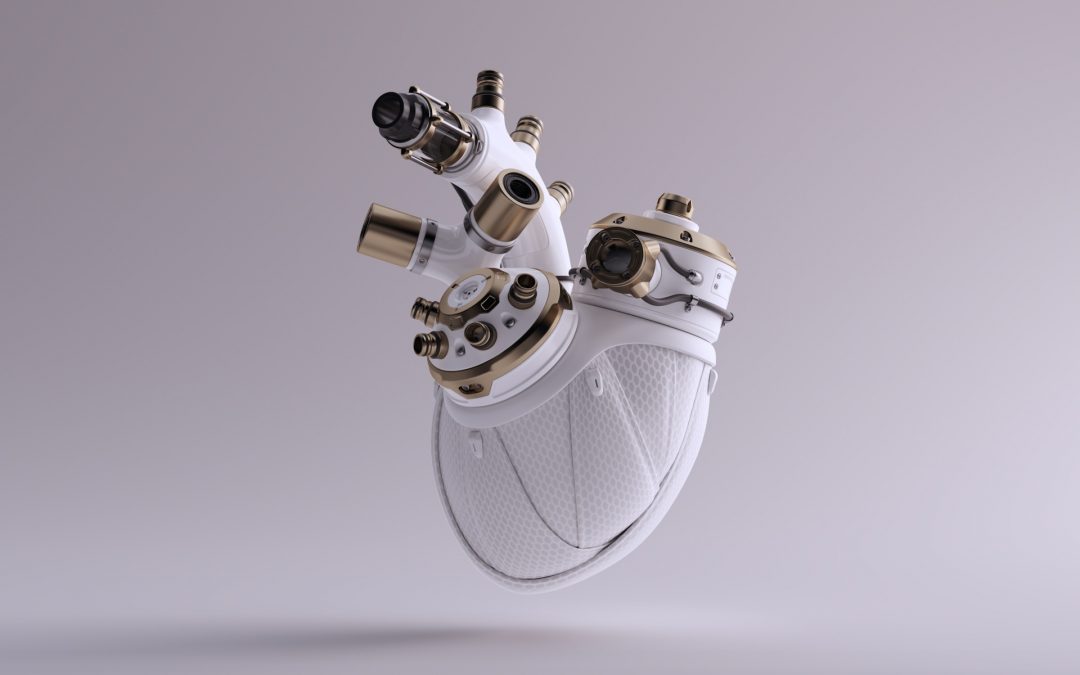![[Press Release] Alliance VITA Wins New Legal Battle for “Society will Progress” Campaign](https://www.alliancevita.org/wp-content/uploads/2020/03/Mediatransport-handicap-et-paternité-1080x675.jpg)
by Alliance VITA | March 6, 2020 | Press Releases, Bioethics Law
Alliance VITA has just won a new victory in the case against “Mediatransports” who has been ordered by the President of the Appeals Court in Paris to pay fines to the association as well as pay for the procedural costs incurred.
On 7 January 2020, the court had ordered “Mediatranports” to immediately resume posting the two visuals which had been unfairly censored and withdrawn. The company filed a plea to have the provisional execution suspended.
On January 2, 2020, “Mediatransports” unilaterally withdrew two of the three versions of the posters in Alliance VITA’s “Society will Progress” campaign, at the request of Parisian mayor Anne Hidalgo. Following Alliance VITA’s urgent court request, this censorship was judged as illegal two days later.
Despite the fact that the magistrate’s decision was legally binding with penalties, “Mediatransports” ignored the court order. The decision rendered by the appeals’ court confirms that the company had no legitimate reason not to obey the magistrate’s decision.

by Alliance VITA | March 5, 2020 | News, Bioethics Law
On March 3, 2020, the French National Consultative Committee on Ethics (“CCNE”) published the “Ethical Challenges of Gene Editing: Between Hope and Caution”. The members had unanimously adopted these recommendations on September 19, 2019.
This statement referred to as “Opinion 133” deals with the ethical dilemmas of modifying DNA in living organisms, plants, and animals, but especially in humans, and focuses on editing human germ cells (from human embryos or gametes) to create genetically-modified babies.
In the context of heritable gene editing, the committee declares: “Too many technical and scientific doubts have yet to be clarified”.
Therefore, the “CCNE” insists that due these unknown long-term effects, an international moratorium is necessary, which would take precedence over any French legislation, prior to implementing any of these applications.
The “CCNE” also advocates a large public awareness campaign and an ethical debate. “To accept the idea that everything could be regulated by means of a tool of governance or dialogue would assume that the technique is neutral with respect to its object (…). In the first instance this is a cultural problem, a choice of civilization for our societies.”
The CCNE emphasizes that societal and cultural issues are involved, especially for the unborn child who gives no consent, and who may file a “grievance” for being born “modified”.
The choice between the individual’s benefit (eliminating disease or handicap) compared to the collective risk (risk of social transgression, refusal of “differences” is complex). Indeed, it is vital to investigate on the danger of genetic standardization. What would it mean to live in a world where differences such as disabilities or even specific personality traits are labeled “unacceptable or undesirable”?
The report also alerts on the fact that this technology is likely to generate unrealistic expectations that cannot be met.
Although the “CCNE” calls for an international moratorium, it does not rule out specific genome repair in the future, but calls for specific ethical examinations for these applications which may lead to developing new medical procedures.
Regarding 3-parent IVF, which raises several identical issues, and which has already resulted in births in several countries, despite the precautionary principle, the “CCNE” concludes that it can be qualified as a treatment for the disease and is not eugenics.
Lastly, the report states that gene editing is closely linked to other issues such as: “the development of organoids from pluripotent stem cells, synthetic gametes, and human organs in animal chimeras”. The pending bioethics bill in France also addresses these topics.
Alliance VITA, who had previously launched its’ No GM Babies campaign in 2016, states that this current report clarifies many of the risks and ethical issues inherent in performing heritable genome editing on human embryos and gametes, in order to give birth to genetically modified children.
By requesting an international moratorium, France is heading in the right direction, calling for prudence and responsibility, especially when the current revision of the bioethics law could abolish the ban on creating transgenic embryos for research purposes.
Nonetheless, some important issues have not been addressed, including the use of human embryos as research material. Since clinical trials must be preceded by research stages, how many embryos will be required for basic research? If there is a shortage of supernumerary embryos, will the ban on creating embryos for research also be lifted? Furthermore, the fact that each embryo is unique, and therefore impossible to completely control, is not addressed. The human embryo, thus created, is the guinea pig of these questionable techniques, which transformed it.
Finally, on the subject of how to treat embryos just after fertilization, this implies deliberately conceiving an embryo with a disease which would need to be treated. Embryos are obtained by IVF, to deliberately create these embryos with defects that hereditary genetic editing is supposed to repair. Isn’t it curious that medicine is creating its own patients, without any promise of treatment, and without any guarantee against unexpected risks being inherited by future generations?

by Alliance VITA | March 5, 2020 | News, Bioethics Law
Although the final version of the bioethics law has yet to be voted in France, the Senate recently removed the article which bans the creation of transgenic embryos. The international pressure is growing; consequently, on March 3, 2020, ethics councils in 3 countries signed a joint statement on heritable human genome editing: the French “National Consultative Committee on Ethics or CCNE”), the English (“Nuffield Council on Bioethics”) and the German (“Deutscher Ethikrat”. On the same day in France the “CCNE” published its recommendations in “Opinion 133”.
The 3 Ethics Councils jointly call on governments and policy-makers around the world, to put ethical considerations at the core of any future deliberations and the development of global governance of heritable genome editing. They affirm that available methods are not yet deemed safe enough for clinical use on humans. They insist that no clinical applications should be undertaken without public approval, following a broad societal debate, and not until research has appropriately assessed and reduced the uncertainties of adverse effects induced on unborn children.
All three councils consider it is essential that any application should not increase disadvantage, discrimination or division in society. The German and French councils also emphasize the principles of non-malfeasance and beneficence.
Despite their sound warnings, these 3 Ethics Councils do not exclude the potential birth of genetically modified children. They admit that some clinical applications of heritable genome editing could “be morally permissible” in the future, and that the “human germline (human embryos and gametes) is not categorically inviolable “.

by Alliance VITA | March 5, 2020 | News, Euthanasia and Suicide
On March 3, 2020 in Belgium, the Federal Control Commission for Evaluating Euthanasia (“CFCEE”) enumerated 2655 official cases of euthanasia in 2019; 12.5% more than the previous year.
The majority of the individuals were aged 60 to 89, with 67.8% over age 70. Most acts of euthanasia were performed at home, following illnesses such as cancer (62.5%) and multiple pathologies (17.3%).
In 2019 one minor was euthanized, representing the fourth child since the 2002 law on euthanasia was extended to include minors in February 2014.
The number of euthanasia cases continues to increase annually, as shown in the graph by the European Institute of Bioethics (“EIB”).
The “EIB” declared that death was not expected in the short term for 448 people. The “majority” of these individuals suffered from multiple pathologies (a combination of several conditions, none of which is “fatal” alone, although the patient’s prognosis was “not likely to improve, and would lead to serious illnesses, including organ failure.”). In addition, a controversial point includes the fact that almost 50 people with mental and behavioral disorders were euthanized in 2019.

by Alliance VITA | February 28, 2020 | News, Transhumanism
The French company Carmat announced a few days ago that it has received permission to resume its clinical studies on artificial heart.
The clinical trials on this device had been suspended in France following the death of a patient. Carmat has now been allowed to begin new clinical trials for this device in France, seven years following their first attempt.
Indeed, the French National Authority for Health (“HAS”) and the National Agency for the Safety of Medicines and Health Products (“ANSM”) have declared the Carmat artificial heart eligible for the “Innovation” program, which facilitates the study and eventual marketing of selected innovative medical devices. “HAS” believes that “the Carmat heart meets the selection criteria for innovation due to its use of biological materials in contact with blood, its self-regulating capacity and the lighter and quieter external equipment”.
Carmat’s Managing Director Stéphane Piat said: “We are delighted by the “HAS” decision, which demonstrates that safer and more effective patient management of heart failure in France is truly necessary. Following the recent approval by the FDA (Food & Drug Administration) to launch feasibility studies for our device in the United States, this is an important step forward to make our technology available for eligible heart transplant patients as soon as possible.”
Indeed, on February 5 Carmat received FDA approval for launching a clinical trial on 10 patients in the US, where the company has already obtained conditional approval from two American ethics committees.
Since there is a severe shortage of hearts for transplants, this artificial heart is promising for increasing the life expectancy of patients with severe heart failure who are awaiting transplantation.
![[Press Release] Alliance VITA Wins New Legal Battle for “Society will Progress” Campaign](https://www.alliancevita.org/wp-content/uploads/2020/03/Mediatransport-handicap-et-paternité-1080x675.jpg)




